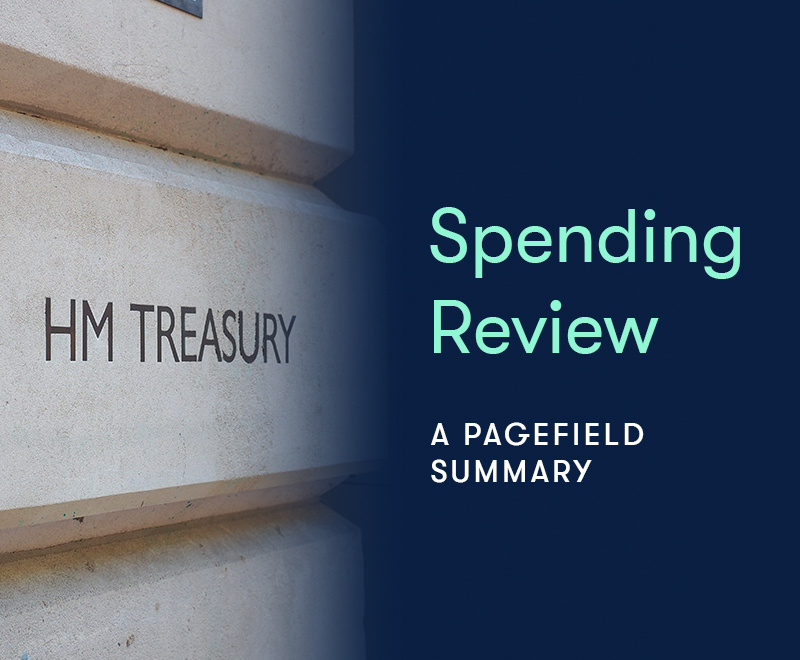The civil service will have spent the last few weeks preparing advice for an incoming Government. Here is an exclusive look at what might be in the brief for an incoming Labour Government, based on former Permanent Secretary for the Department for International Trade, John Alty‘s experience of producing these notes over the last 40 years.
**
Dear Secretary of State
Welcome to the Department for Business and Trade. We are looking forward to working with you and your Ministerial team to deliver the growth which the UK economy so desperately needs. International trade – both exports and imports – will play a key role in boosting productivity and GDP. The following sections cover the key issues facing the UK, the urgent matters on which we are seeking your decision, and suggestions for early contacts.
Key issues
The UK faces a difficult trading environment, with an increasing fragmentation of the world trading system and no consensus on how best to modernise its rules. US/China frictions, increased barriers with the EU since Brexit, and a greater focus on security all mean that UK exporters face a much more difficult task than when Labour was last in power. In addition, understandable ambitions to combat climate change have led to new barriers, such as the EU’s Carbon Border Adjustment Mechanism, designed to level the playing field but which are seen by some as protectionist.
This makes your plans to set out a UK trade strategy, which we discuss further below, all the more timely.
Urgent decisions
You have set out a series of priorities in your Manifesto, which require early decisions:
- Trade strategy: we would welcome an early discussion with you about the timing and process for producing this document. As part of this we recommend covering inward investment as well as trade, given the strong links between the two, and how a UK-wide trade strategy links with other policy areas such as industrial strategy, climate change and development policy. You will also want to consider how relations with the EU will be covered, given its importance to trade. We assume you will want to engage extensively with business and other stakeholders in its production, which means giving them time to input. Realistically they will need into the early Autumn to do so. The strategy will need to be agreed collectively across Government, especially with the Chancellor, Foreign Secretary, Net Zero Secretary, and DEFRA Secretary and you will want to work closely especially with the Treasury on its development.
- The inherited agenda: you have said that you want to continue to seek an FTA with India, to be an active participant in the Comprehensive and Progressive Agreement for Trans-Pacific Partnership (CPTPP), and to pursue opportunities for collaboration in the Gulf. Although considerable progress has been made in our negotiations with India, inevitably the difficult issues have been left till last. Whilst many business sectors are in favour of a deal, they have also said that a shallow deal is not worth having. We will provide more detailed briefing separately on the options for taking this forward.
- Early flashpoints: you are likely to come under pressure to state your position on Chinese Electric Vehicles (EVs). As you know, the US has put 100% tariffs on imports (not that there were many imports into the US anyway). The EU has provisionally imposed lower tariffs of around 30% (on top of 10% WTO tariffs on all its car imports), but has indicated it is willing to negotiate a deal. So far there have been no industry complaints to the UK Government, and you will want to consider your overall stance on what could be seen as a touchstone on how closely we follow the US or the EU.
Key people to meet
We have prepared draft letters for you to send to a range of trade counterparts around the world with whom we look to work constructively. This includes the EU Commissioner, Dombrovskis, recognising that a new Commission will be established before the end of the year, Katherine Tai, USTR, Trade Ministers in CPTPP countries, and counterparts in other key markets such as India and the Gulf. We recommend early phone calls with a number of these and will be giving separate advice on priority countries for overseas travel.
Domestically you will want to raise trade issues in your meetings with key business organisations, such as the CBI, MakeUK, BCC, FSB and others. Given the importance of services exports to the UK, you will also want to engage with bodies such as The CityUK. Sector bodies such as the SWA and NFU will also be priorities for early contact. We have suggested a full list of prioritised contacts, including other bodies such as the TUC and key NGOs.
We also advise engaging early with the trade Ministers of the devolved administrations, who will be looking to see that their interests are represented in your trade strategy, and make it a priority to visit the different countries and regions of the UK, for discussions with Mayors of City Regions, for instance. Potentially these visits could be badged as part of your engagement in drawing up the Trade Strategy.
**
Looking for insights and support on how UK trade policy will impact your business in the near-term? At Pagefield, we understand there are many challenges – and opportunities – for businesses looking to thrive on the global stage, with 2024 being a pivotal year for UK politics. If you want to talk to us about how we can help you to engage with international markets to achieve your strategic aims, please get in touch at hello@pagefield.co.uk



